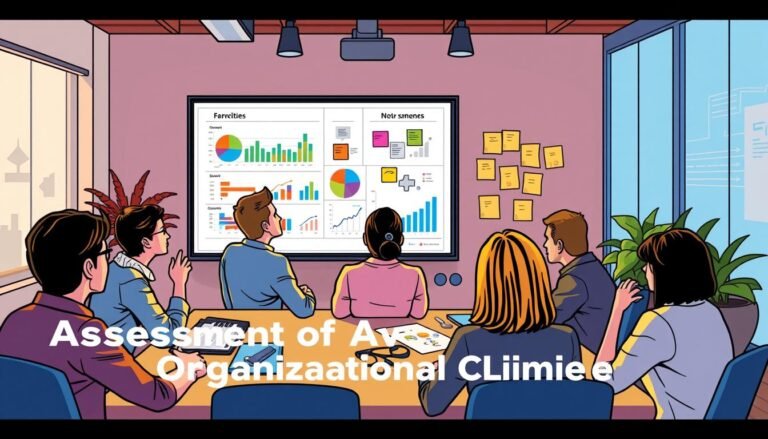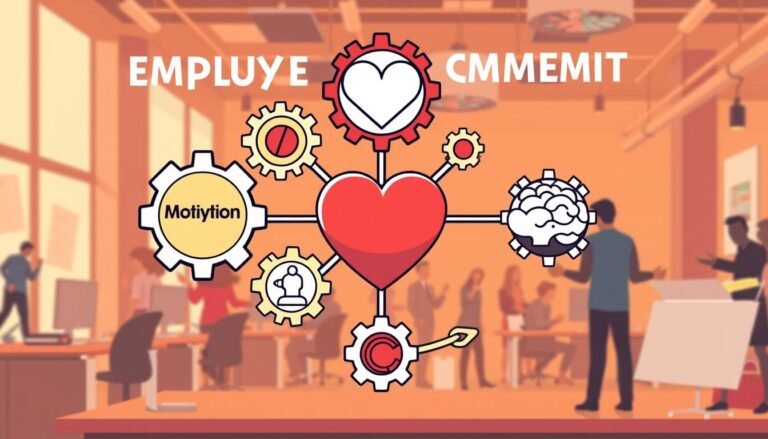Leveraging Diversity and Inclusion for Organizational Success in Ireland
Picture a university with only 3,300 students making a big splash in STEM and health sciences. That’s Xavier University of Louisiana. Founded by Mother Katharine Drexel in 1925, this school teaches us that being small doesn’t limit your success. It shows that big achievements in diversity and inclusion are very possible, from graduating top medical doctors to leading in pharmacy education.
At the same time, Neal McKinney of DePauw University improved the number of underrepresented students going on study abroad. He did this big time. These successes prove the great advantages of a diverse and inclusive educational setting. They’re benefits that flow into the workplace as well.
The ideas of boosting diversity also help Irish companies. As our work teams become more varied, we can tap into a wealth of new thoughts. This can take organizations to better places. Focusing on diversity, equity, and inclusion (DE&I) is smart strategy, not just a good deed. It enriches how we make decisions and creates spaces where everyone can shine.
Key Takeaways
- Diversity and inclusion drive organizational success by nurturing innovative ideas.
- Xavier University’s achievements highlight the power of diverse talent development.
- By focusing on DE&I, companies can boost employee satisfaction and keep their best people.
- Companies with diverse leadership and teams can enhance their financial performance by up to 35%.
- Irish businesses need to embrace diversity to fully realize their potential.
Importance of Diversity and Inclusion in the Irish Workplace
Diversity and inclusion are essential for a successful workplace. In Ireland, it’s crucial to be culturally aware and embrace inclusion. This helps organizations in many ways.
Understanding Diversity
In Ireland, diversity means more than just visible differences. It’s about having various opinions and approaches. This mix of thoughts and skills boosts creativity and problem-solving in a team.
Key Aspects of Inclusion
Inclusion means everyone feels they belong without being left out. It’s all about embracing employees for who they are. Companies like EY in the US support various family structures and gender affirming care. This shows the importance of caring for all employees.
The Irish Workforce Landscape
Ireland’s workforce is becoming more diverse. This means companies must focus on diversity, equity, and inclusion (DE&I). By truly embracing these values, companies can attract great talent and see more innovation.
| Demographic | Statistics |
|---|---|
| Female Representation in Corporate Boards | 10% |
| Pay Gap between Women and Men for Same Work | 14.6% |
| Women as Political Representatives | 26% |
| Embracing DE&I Policies | 67% of LGBT individuals |
Working towards diversity greatly impacts a company’s success. Teams with more diverse members do better than those who lack diversity. Such teams tend to be more innovative and competitive.
Finally, in Ireland, being open to diverse cultures and inclusive practices is vital. It’s not just a rule; it’s key to thriving in today’s business world.
Benefits of a Diverse and Inclusive Organization in Ireland
Organizations in Ireland see the big pluses of having a diverse and inclusive workplace. This helps not only employee happiness but also boosts business success.
Enhanced Creativity and Innovation
A diverse and inclusive workspace boosts creativity and innovation. It brings together different views and experiences. This leads to new, ground-breaking ideas and products. Companies with gender and ethnic variety perform better than their peers.
Working with people from various backgrounds makes teams more efficient. They solve problems better and are more innovative. A study by Deloitte showed that 80% of people find inclusive workplaces crucial for innovation.
Improved Employee Engagement and Retention
Having diverse and inclusive policies makes employees feel valued. It boosts employee satisfaction and loyalty. In Ireland, 64% of workers have seen DE&I improvements over three years. This means happier employees who are more engaged in their jobs.
Better Problem-Solving and Decision-Making
Different perspectives in teams improve decision-making. This allows organizations to tackle complex problems more effectively. Research shows diverse teams solve problems better. They get a competitive edge in the market.
Promoting diversity and inclusion makes businesses more accountable and fair. This leads to better company performance.
| Key Benefits | Impact Metrics |
|---|---|
| Enhanced Creativity and Innovation | 21% more likely to outperform competitors (balanced gender) 35% more likely to outperform competitors (racial and ethnic diversity) |
| Improved Employee Engagement and Retention | Increased employee satisfaction and retention rates 80% inclusion cited as crucial in workplace |
| Better Problem-Solving and Decision-Making | Diverse perspectives leading to better solutions and decisions |
Creating a diverse and inclusive workplace is both ethical and smart. It leads to better business outcomes.
Developing a Diversity and Inclusion Strategy
An effective diversity and inclusion (DE&I) strategy is key for successful organizations. It needs clear objectives, ways to measure progress, leadership that is fully involved, and inclusive policies. These elements ensure the environment values everyone’s contributions. They help move the organization ahead as well.
Setting Clear Goals and Metrics
Starting with clear DE&I goals and metrics is crucial. These goals should match the company’s bigger aims. They provide a way to clearly see how diversity efforts affect the business. For example, focusing on diversity and inclusion can boost employee retention by 5.4 times.
Engaging Leadership and Management
Getting leadership deeply involved in DE&I is a must. Their support is vital to make the whole team work on this culture. Studies show that just a quarter of leaders believed inclusion was a strong part of their company’s values. This highlights the need for top management to drive a culture of meaningful contribution from all. It also helps tackle biases and resistance to needed changes.
Inclusive Policies and Practices
It’s critical to build DE&I into company policies and practices. This means making job descriptions less biased, creating fair hiring processes, and having clear rules. Doing so not only draws top talent but also makes employees nearly 10 times more excited to work. Also, companies known for having diverse and inclusive workplaces often see bigger revenue growth.
| Benefit | Metrics |
|---|---|
| Higher Employee Retention | 5.4X more likely |
| Increased Job Satisfaction | 9.8X more likely |
| Enhanced Financial Performance | 2.4X more likely |
Inclusive Workplace Practices in Ireland
In Ireland, making a workplace inclusive means adopting practices that make everyone feel valued. Such actions are key for a Safe Workplace, Flexible Work, and Cultural Competence. They ensure the organization is welcoming for all.
Creating a Safe and Respectful Environment
Making a Safe Workplace is really important. Failte Ireland reports many hospitality places face challenges hiring new staff. They also have issues rehiring. One big piece is getting rid of social stereotypes. These can harm how new people are chosen, as Kirton & Greene say.
Everyone should know what’s happening and be able to join in decisions. This way, the workplace feels safe and friendly for all.
Flexible Work Arrangements
Having Flexible Work options is vital for a varied workforce. It helps staff balance work with life. This was noted by Mor Barak and others. They found that feeling included and having what you need at work is crucial. Flexibility can also fight feeling cut off from others and boost well-being.
Cultural Competence Training
Training in Cultural Competence is key. McMahon & O’Brien point out it helps fight issues in the job market. It teaches about different cultures, helping people understand and respect each other. This kind of learning can break down cultural barriers and get everyone fully involved at work. By doing this, Irish companies build a place where everyone belongs.
Addressing Unconscious Bias in the Workplace
Unconscious biases are everywhere and can guide our decisions without us even knowing. They lead to bad results, like making people feel left out or different. Businesses need to tackle these biases head-on with good programs and training.
Understanding Unconscious Bias
Unconscious bias is when we automatically judge others based on stereotypes. It affects things like who gets hired, promoted, or how teams work together. Recognizing and understanding these biases is key to making the workplace more fair.
Implementing Unconscious Bias Training
Offering in-depth Unconscious Bias Training helps us see and handle these hidden biases. Training programs that include visual practices can be very effective. They create a space where employees learn to spot and fight their own biases. This kind of training is vital for creating a work atmosphere where everyone feels included and respected.
Nestlé is a great example. They made sure nearly all their people leaders and many employees took part in unconscious bias and respect training.
Monitoring and Evaluating Progress
Keeping an eye on how well bias training and DE&I Initiatives are working is a must. Having a scorecard that follows up on important areas like if people are leaving, getting promoted, how happy they are, any rule-breaking, and similar points, helps. This follow-up is how companies keep on track and ensure their workplaces keep getting fairer.
| Company | Metric | Result |
|---|---|---|
| Nestlé | Women in Senior Executive Positions | 30% |
| Nestlé | Managerial Positions Held by Women | 45% |
| Nestlé | LGBTQI+ Network Members (UK & Ireland) | 220 employees and allies |
Even with laws and social changes, unfairness is still a problem in many workplaces. This is why ongoing bias training and keeping an eye on progress are crucial. It’s the only way to make sure that being inclusive and fair is at the heart of what a company stands for. And, doing this can help make the business better for everyone, leading to more success.
Diversity Recruiting Strategies
Using strong Diversity Recruiting Strategies is crucial for a welcoming, dynamic workplace. Ireland leads in this, focusing on fair hiring and welcoming messages. This aims to get a wide range of folks to apply.
Inclusive Job Descriptions
The first step to include diversity is through job descriptions. These should use neutral, welcoming words. They must highlight the company’s fair and inclusive spirit.
It’s key to show that all types of backgrounds and skills are valued. This makes more people feel they could fit in and want to apply.
Screening In Candidates
Once a variety of folks apply, the next move is to screen them. The focus should be on their future potential, not just past jobs. Tools like the Diversity Hiring Assessment help find those with unique talents.
Eliminating Bias in the Hiring Process
Firms need to cut out biases in how they hire. Using methods like blind resumes and set interview questions can help. These steps make the application process fairer for everyone.
When 96% of workers feel they are treated justly, and 94% can be themselves, we see the impact of good Diversity Recruiting Strategies. Plus, 93% are proud to talk about where they work. For 92%, it’s a great place overall. This clearly shows the value of fair hiring.*
The data backs up these claims:
| Aspect | Percentage |
|---|---|
| Employees treated fairly | 96% |
| Employees can be themselves | 94% |
| Employees proud of their workplace | 93% |
| Great place to work | 92% |
By focusing on Diversity Recruiting Strategies, companies not only build a more inclusive environment but also boost their business and innovation.
Leveraging Diversity and Inclusion for Organizational Success in Ireland
Irish companies seeing success know the value of diverse, inclusive workplaces. By welcoming varied viewpoints, these firms achieve more. They go beyond doing what’s right; they gain a powerful business edge.
Companies boosting different types of diversity often see their profits rise. For example, those including gender, ethnic, and racial diversity practices are up to 15% more likely to earn higher profits. And those excelling in racial and ethnic diversity can be 35% more profitable.
A mix of people brings top talent in and keeps them happy. This makes the work environment better for everyone. A welcoming atmosphere helps companies grow and succeed long-term.
- BASF shines on DiversityInc’s “Top 50 Companies for Diversity” (2021) and Forbes’ “The Best Employers for Diversity” (2020).
- Ford Motor Company impressively appears in DiversityInc’s Top 50 11 times.
- Sodexo won the Catalyst Award in 2012 and is in DiversityInc’s “Hall of Fame” since 2013.
- AIG made DiversityInc’s Top Companies for Diversity in 2021 and was praised by the Human Rights Campaign.
- L’Oréal got the EDGEplus Certification for gender equity in 2021 and scored high in Refinitiv’s 2020 Diversity & Inclusion Index.
- Bayer stands out in the Bloomberg Gender Equality Index as a Top 10 for Asian Americans.
- Johnson & Johnson often makes DiversityInc’s Top 50 list and is noted for diversity in Forbes.
Now, let’s compare the achievements of companies leading in diversity:
| Company | Recognition | Year |
|---|---|---|
| BASF | DiversityInc’s Top 50, Forbes’ The Best Employers for Diversity | 2021, 2020 |
| Ford Motor Company | DiversityInc’s Top 50 | 11 times |
| Sodexo | Catalyst Award, DiversityInc Hall of Fame | 2012, since 2013 |
| AIG | DiversityInc Top Companies for Diversity, Human Rights Campaign | 2021 |
| L’Oréal | EDGEplus Certification, Refinitiv Diversity & Inclusion Index | 2021, 2020 |
| Bayer | Top 10 Company for Asian Americans, Bloomberg Gender Equality Index | – |
| Johnson & Johnson | DiversityInc’s Top 50, Forbes’ The Best Employers for Diversity | 14 times, 2020 |
By openly embracing diversity and inclusion, companies in Ireland pave the way for great success. They build a community of progress and growth in their business sector.
Measuring the Impact of Diversity and Inclusion Initiatives
It’s really important to know how DE&I Impact works in a company. This helps with Measuring Initiatives and it makes sure the company keeps growing. Most surveys show companies spend between $50,000 to over $1 million on DE&I each year. This shows they are putting a lot of money into it.
ERGs and working with others outside the company use the most money. Then comes training on DEI and getting rid of unconscious biases. Over 70% of companies check how inclusive they are. But, they don’t all keep track of this info in a good way. It’s interesting that bigger DEI budgets mean more focus on checking inclusion.
About a quarter of companies say they use inclusion data for their teams. But not many keep track of how well their DEI spending and efforts are doing. Even if they think about checking this in the future. This is a big chance to make DEI work better for the company and its employees.
| Statistics | Percentage |
|---|---|
| Global leaders noting increased importance of DEI | 78% |
| Business leaders with DEI budget | 85% |
| Internal pressure driving DEI initiatives | 66% |
| Support for DEI for business success | 39% |
| Emphasizing improved employee engagement | 40% |
78% of top business leaders think DEI is more important now than it was last year. And 85% of them have a special budget for DEI. This budget is 11% bigger than before. Most say they are pushed by people inside the company to do better on DEI. They believe it helps the business do well and it makes employees happier.
There is still a lot of work to do in checking how well DE&I efforts actually work. But, using good data and making DE&I goals match the company’s larger goals can lead to real growth and success over time.
Conclusion
The future workforce in Ireland depends greatly on diversity and inclusion. When companies make DE&I part of their main plans, they create a better place to work. This helps them get the best people and keeps them happy. A diverse and inclusive space sparks new ideas, making businesses more ready for the world’s changes.
The way we find temporary jobs is changing because of gig work. This shift affects how people look for jobs and how companies meet their needs. To keep up, Irish businesses should fight hidden biases and make hiring fair for everyone. They should use clear job ads and fair ways to choose new team members. These steps are key to making an even field for all involved.
By following bright examples like GAP Talent, which reached 60% diversity in roles filled, companies can do much better than the average. Almost two thirds of people in a Zellis survey said things are getting better when it comes to DE&I. And 80% in a Deloitte survey agreed that including all employees is key. It’s clear that companies in Ireland who do this will do well into the future. Making an effort toward a diverse, inclusive workforce isn’t just smart business. It’s what our society needs to make real progress and ensure everyone is better off.
FAQ
Why is diversity and inclusion important in the Irish workplace?
Diversity and inclusion are important in Ireland because they make everyone feel valued. They also improve decision making and help the workforce be its best. This leads to better services, happy employees, and higher success for companies.
How does workforce diversity contribute to organizational success?
A diverse workforce brings different skills and ideas. This leads to more creative problem-solving and innovation. With these, companies perform better in the market and stand out from the competition.
What are some key aspects of an inclusive workplace?
An inclusive workplace is safe and respectful for everyone. It offers flexibility and values different cultures. These practices help with work-life balance and make employees feel respected. This boosts engagement and helps keep good workers.
What strategies can be employed to promote diversity and inclusion?
To promote diversity and inclusion, it’s important to have clear goals and support from leaders. Make sure hiring is fair with job descriptions that encourage diversity. Also, train employees to spot and stop bias.
How can unconscious bias be addressed in the workplace?
Addressing unconscious bias starts with training to spot and reduce biases. It’s also key to check how well these trainings are working. This helps make sure efforts to fight bias are meeting the company’s goals.
What are the benefits of flexible work arrangements?
Flexible work benefits staff by meeting their individual needs and offering balance. It leads to happier employees and keeps good employees around. This drives success and builds a culture that people love to work in.
How do inclusive job descriptions help in diversity recruiting?
Inclusive job descriptions draw a wider pool of applicants. They help find skilled candidates from all backgrounds. This makes hiring fair and beneficial for the team and the business.
What role does leadership play in fostering an inclusive workplace?
Leaders set the tone for an inclusive workplace. They need to really support diversity. Involving leaders in these efforts makes sure that diversity and inclusion are part of the company’s everyday acts and policies.
How can the impact of DE&I initiatives be measured?
The success of DE&I efforts can be seen through metrics on employee happiness and company performance. These measurements guide a company’s efforts to continuously improve their diversity and inclusion practices.
Source Links
- 2020 Speakers – 2024 Global Inclusion Conference | Diversity Abroad
- Outward Inclusion
- Diversity in the Workplace: How It Fuels Success | ITD World
- The importance of Diversity and Inclusiveness
- Adapting to the Changing Business Landscape in Ireland: Key Strategies for Success — Shared, flexible office space in South Dublin
- RECRUITERS | How Diversity, Equity, and Inclusion (DE&I) Matter
- What Is Leveraging Diversity and Inclusion? – Sloneek®
- What Are the Benefits of Diversity and Inclusion in the Workplace? – iLead Virtual Learning Centre
- Fostering Culture, Diversity, and Inclusion: Building Stronger Organizations
- Why Is Diversity and Inclusion in the Workplace Important?
- Embracing Diversity in the Workplace
- Inclusive Hiring Policy – A practical approach to advance equality, diversity and inclusion in your workplace
- Global diversity, equity, and inclusion (GDEI)
- FINEOS Wins the Inclusion and Diversity Award from CIPD Ireland – FINEOS
- Addressing Unconscious Bias – HR.com
- Counteracting Unconscious Bias – eCornell
- Diversity, equity & inclusion
- Top Three Effective Diversity and Inclusion Levers for Lasting Impact
- Diversity Hiring Toolkit | Hiring Success
- Diversity, Equity & Inclusion
- 5 Lessons on Diversity and Inclusion From Top Global Companies
- Embracing Diversity and Inclusion: Fuelling a Thriving Job Market
- The ROI of Inclusion: How to Align Diversity, Equity, and Inclusion (DEI) and Business Results
- Workday DEI Landscape Report: Business Leaders Remain Committed in 2024
- Chapter 7: The Business Case for Implementing a Diversity and Inclusion Quality-Based Strategy
- Role of International Recruitment in Promoting Diversity and Inclusion in Global Firms








